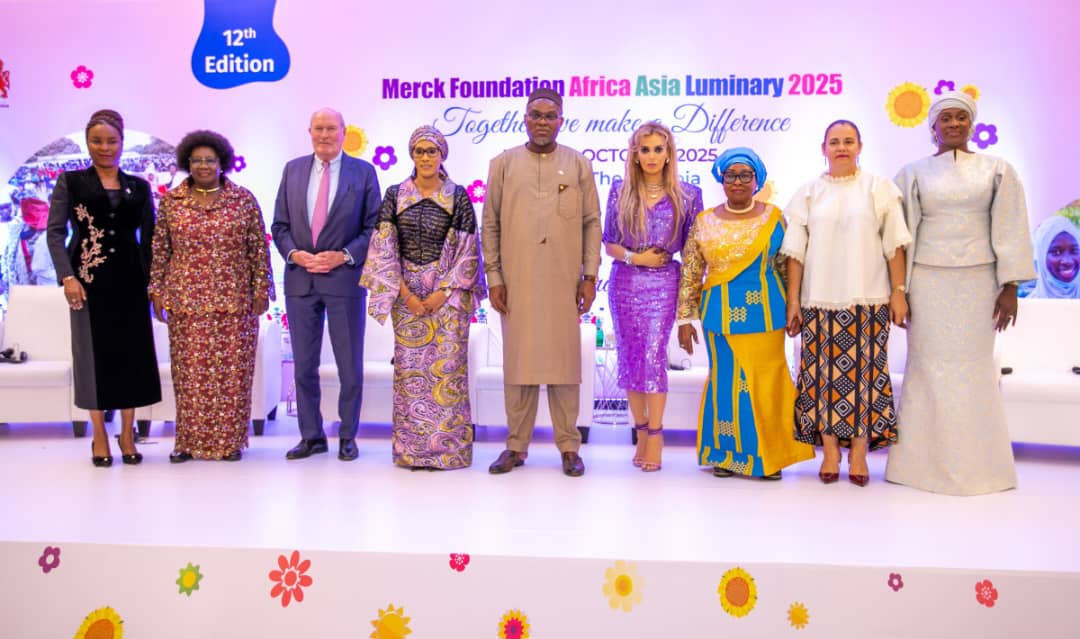Gambiaj.com – (Banjul, The Gambia) – African first ladies have shared a unified call to dismantle stigma, expand healthcare access, and empower women and children through education and social reform. The call was made as they convened in Banjul this week for the 12th Edition of the Merck Foundation Africa–Asia Luminary.
The two-day conference, co-chaired by The Gambia’s First Lady Fatoumatta Bah Barrow, brought together women leaders alongside ministers, medical professionals, policymakers, and media representatives.
The gathering highlighted how collaborative interventions can reshape opportunities for women and children across the continent.
In her keynote address, Madame Barrow underscored that health is not a privilege but a human right. She called for stronger healthcare systems to address pressing challenges such as infertility, maternal and child mortality, and non-communicable diseases. She also emphasized the critical role of responsible journalism in shaping awareness and breaking harmful stigma.
“Health is a fundamental human right and a key to dignity and opportunity,” she said. “Journalists must be equipped to report ethically and accurately. Responsible reporting saves lives.”
The First Ladies collectively framed infertility not as a private tragedy but as a social issue requiring solidarity, education, and access to treatment.
Burundi’s Angeline Ndayishimiye highlighted her country’s first infertility center and her “Educating Linda” program, which grants scholarships to underprivileged girls, illustrating how healthcare and education go hand in hand in breaking cycles of disadvantage.
From the Central African Republic, Brigitte Touadéra reinforced the “More Than a Mother” initiative, which advocates shared responsibility in reproductive health and works to end the isolation faced by women struggling with infertility.
Senegal’s Marie Khone Faye outlined campaigns against child marriage, gender-based violence, and female genital mutilation, stressing that girls’ education remains her strongest weapon to build resilient futures.
Liberia’s Clar Marie Weah delivered one of the most powerful appeals for unity, urging her peers to expand their role as advocates beyond ceremonial leadership. “We are more than first ladies; we are first responders to suffering, first believers in potential, and first defenders of dignity,” she said.
Adding a global voice, Portugal’s former First Lady Maria Cavaco Silva stressed that international solidarity is vital, pointing to the need for partnerships that reinforce African-led efforts to strengthen healthcare and protect women’s rights.
What emerged from the Luminary was not just a series of national programs but a shared blueprint for transformative change: better healthcare services, informed communities, reduced stigma, and greater educational opportunities for girls.
Together, the First Ladies’ interventions aim to empower women to claim dignity, agency, and equality—while ensuring children grow up in healthier, more supportive societies.
As Madame Barrow closed the session, the message was clear: these commitments, if translated into sustained action, have the power to reframe how African nations address the health and social needs of their most vulnerable populations.










